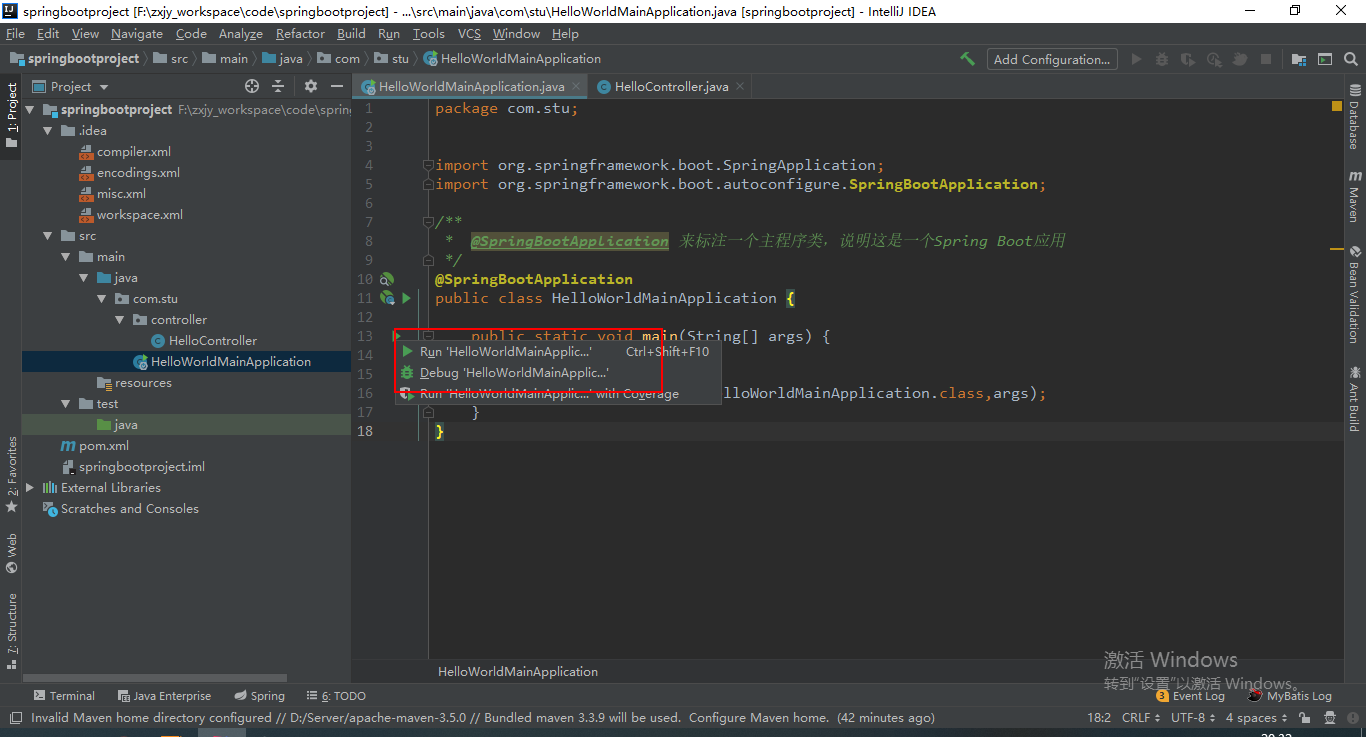官网:
https://docs.spring.io/spring-boot/docs/1.5.9.RELEASE/reference/htmlsingle/#using-boot-starter
https://spring.io/projects/spring-boot
学习要求
- 熟悉Spring基础
- 熟悉Maven使用
环境要求
- Java8及以上
- Maven 3.3及以上:https://docs.spring.io/spring-boot/docs/current/reference/html/getting-started.html#getting-started-system-requirements
一、Spring与SpringBoot
1、Spring能做什么
1.1、Spring的能力
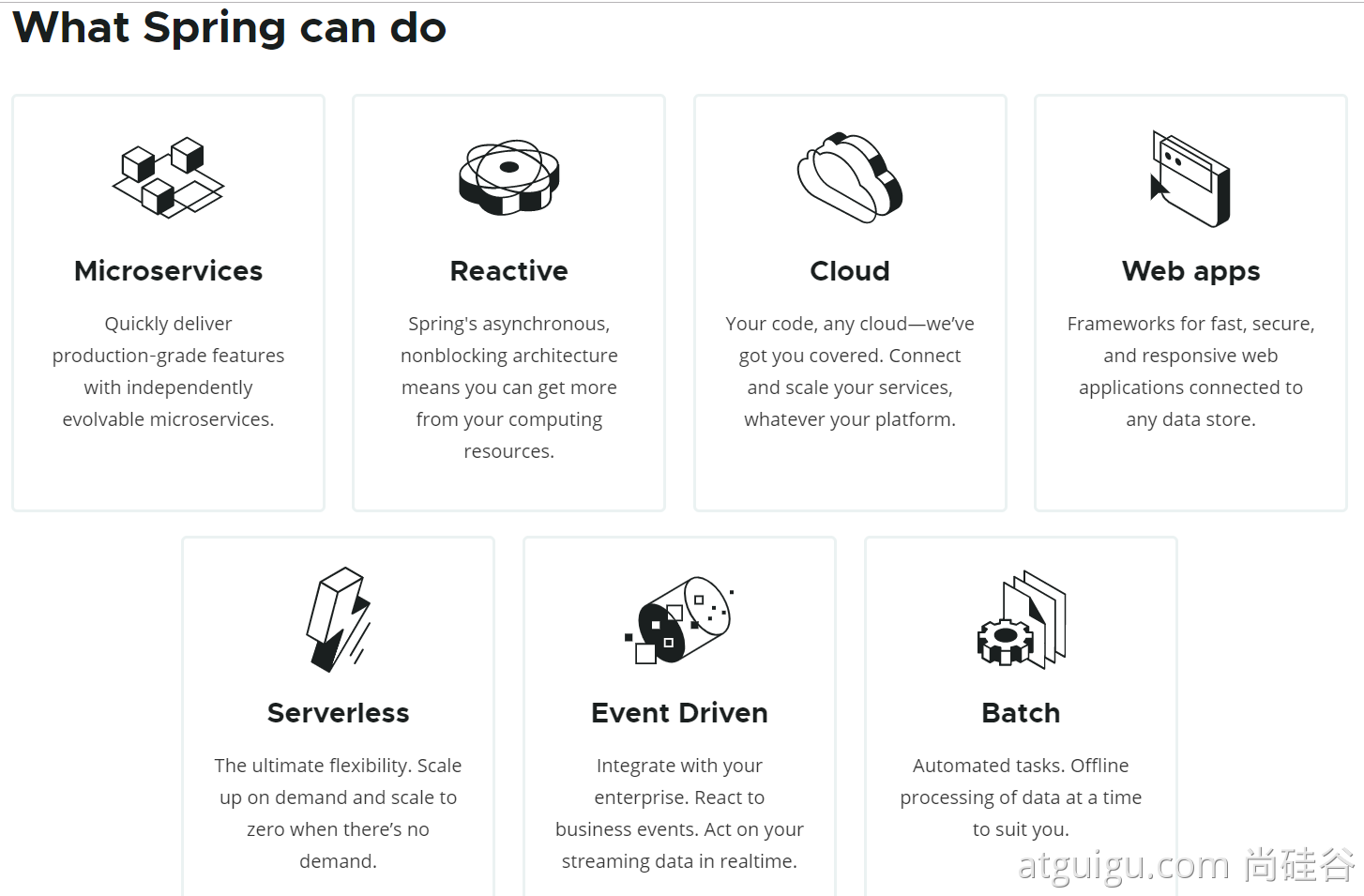
1.2、Spring的生态
https://spring.io/projects/spring-boot
覆盖了:
web开发
数据访问
安全控制
分布式
消息服务
移动开发
批处理
......
1.3、Spring5重大升级
1.3.1、响应式编程
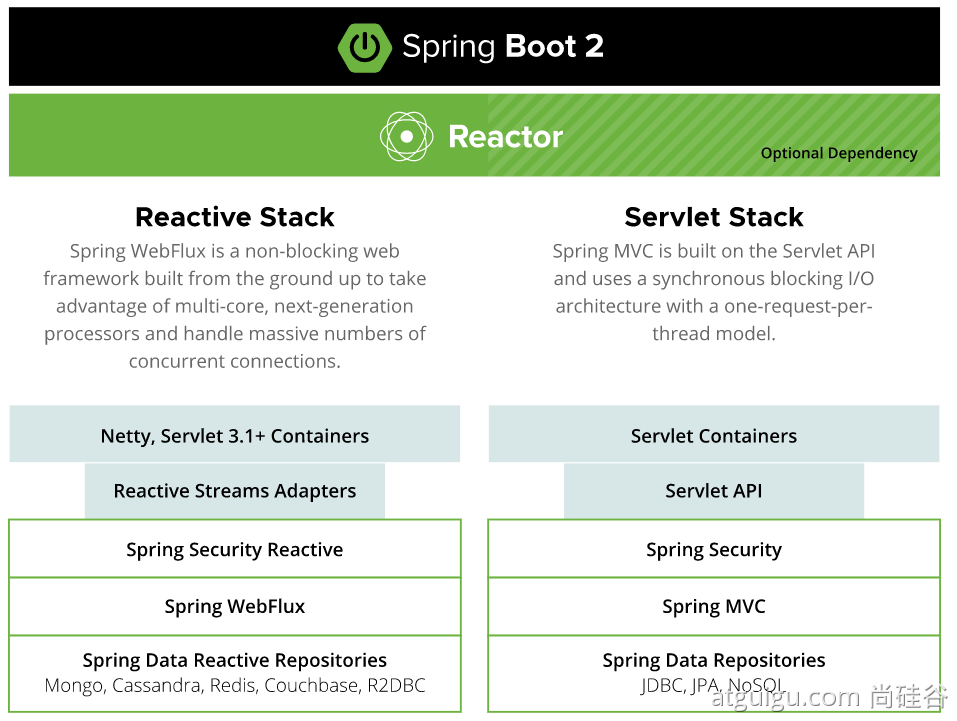
1.3.2、内部源码设计
基于Java8的一些新特性,如:接口默认实现。重新设计源码架构。
二、为什么用SpringBoot
Spring Boot makes it easy to create stand-alone, production-grade Spring based Applications that you can "just run".
能快速创建出生产级别的Spring应用
2.1、SpringBoot优点
- Create stand-alone Spring applications
- 创建独立Spring应用
- Embed Tomcat, Jetty or Undertow directly (no need to deploy WAR files)
- 内嵌web服务器
- Provide opinionated 'starter' dependencies to simplify your build configuration
- 自动starter依赖,简化构建配置
- Automatically configure Spring and 3rd party libraries whenever possible
- 自动配置Spring以及第三方功能
- Provide production-ready features such as metrics, health checks, and externalized configuration
- 提供生产级别的监控、健康检查及外部化配置
- Absolutely no code generation and no requirement for XML configuration
- 无代码生成、无需编写XML
SpringBoot是整合Spring技术栈的一站式框架
SpringBoot是简化Spring技术栈的快速开发脚手架
2.2、SpringBoot缺点
- 人称版本帝,迭代快,需要时刻关注变化
- 封装太深,内部原理复杂,不容易精通
3、时代背景
3.1、微服务
James Lewis and Martin Fowler (2014) 提出微服务完整概念。https://martinfowler.com/microservices/
In short, the microservice architectural style is an approach to developing a single application as a suite of small services, each running in its own process and communicating with lightweight mechanisms, often an HTTP resource API. These services are built around business capabilities and independently deployable by fully automated deployment machinery. There is a bare minimum of centralized management of these services, which may be written in different programming languages and use different data storage technologies.-- James Lewis and Martin Fowler (2014)
- 微服务是一种架构风格
- 一个应用拆分为一组小型服务
- 每个服务运行在自己的进程内,也就是可独立部署和升级
- 服务之间使用轻量级HTTP交互
- 服务围绕业务功能拆分
- 可以由全自动部署机制独立部署
- 去中心化,服务自治。服务可以使用不同的语言、不同的存储技术
3.2、分布式

分布式的困难
- 远程调用
- 服务发现
- 负载均衡
- 服务容错
- 配置管理
- 服务监控
- 链路追踪
- 日志管理
- 任务调度
- ......
分布式的解决
- SpringBoot + SpringCloud
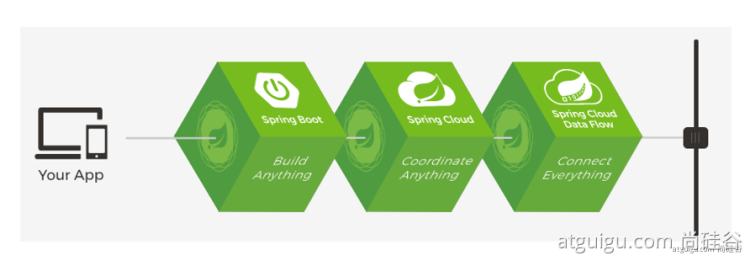
3.3、云原生
原生应用如何上云。 Cloud Native
上云的困难
- 服务自愈
- 弹性伸缩
- 服务隔离
- 自动化部署
- 灰度发布
- 流量治理
- ......
上云的解决

4、如何学习SpringBoot
4.1、官网文档架构

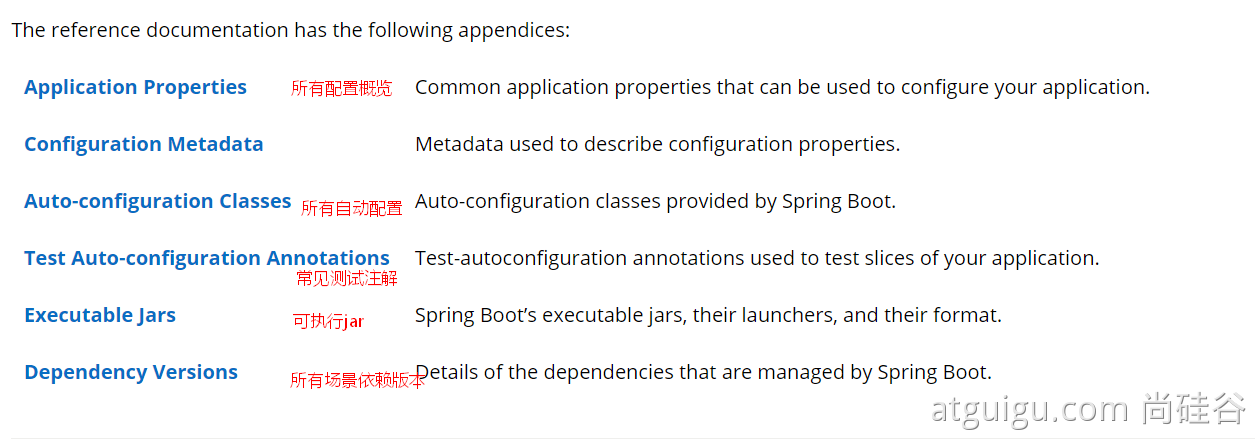
一、Spring Boot 简介
简化Spring应用开ComponentScan发的一个框架;
整个Spring技术栈的一个大整合;
J2EE开发的一站式解决方案;
二、微服务
2014,martin fowler
微服务:架构风格(服务微化)
一个应用应该是一组小型服务;可以通过HTTP的方式进行互通;
单体应用:ALL IN ONE
微服务:每一个功能元素最终都是一个可独立替换和独立升级的软件单元;
三、环境准备
环境约束
–jdk1.8:Spring Boot 推荐jdk1.7及以上;java version "1.8.0_112"
–maven3.x:maven 3.3以上版本;Apache Maven 3.3.9
–IntelliJIDEA2017:IntelliJ IDEA 2017.2.2 x64、STS
–SpringBoot 1.5.9.RELEASE:1.5.9;
统一环境;
给maven 的settings.xml配置文件的profiles标签添加
<profile> <id>jdk-1.8</id> <activation> <activeByDefault>true</activeByDefault> <jdk>1.8</jdk> </activation> <properties> <maven.compiler.source>1.8</maven.compiler.source> <maven.compiler.target>1.8</maven.compiler.target> <maven.compiler.compilerVersion>1.8</maven.compiler.compilerVersion> </properties> </profile>
整合maven进来;
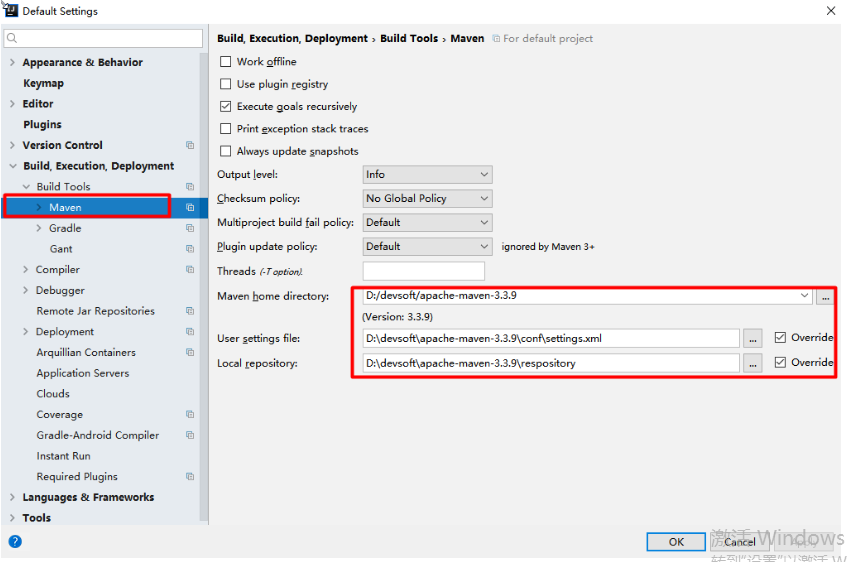
一个功能:
浏览器发送hello请求,服务器接受请求并处理,响应Hello World字符串;
1、创建一个maven工程;(jar)
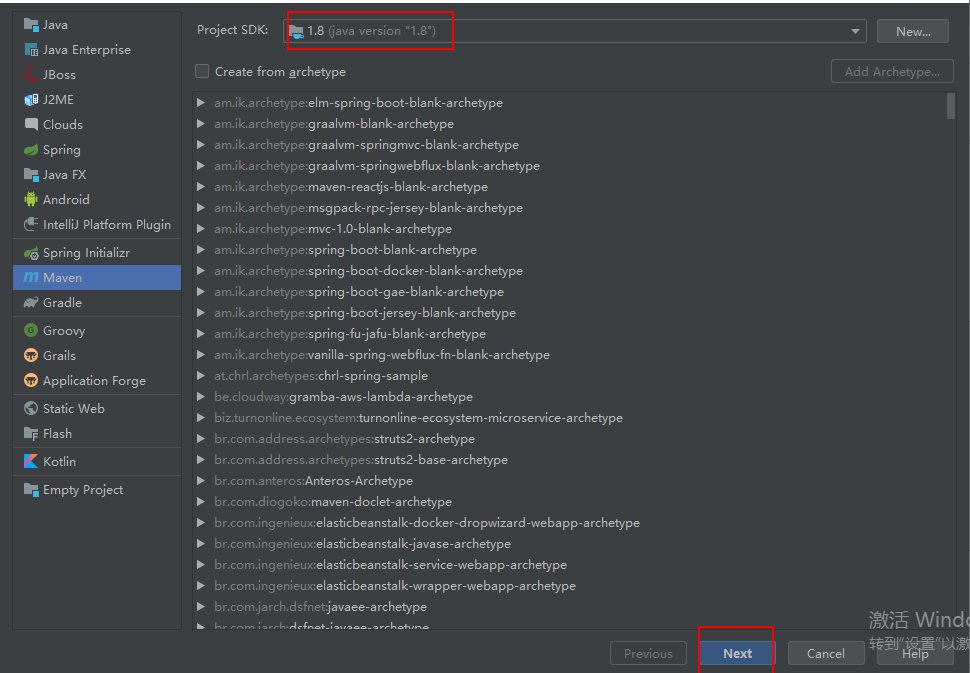
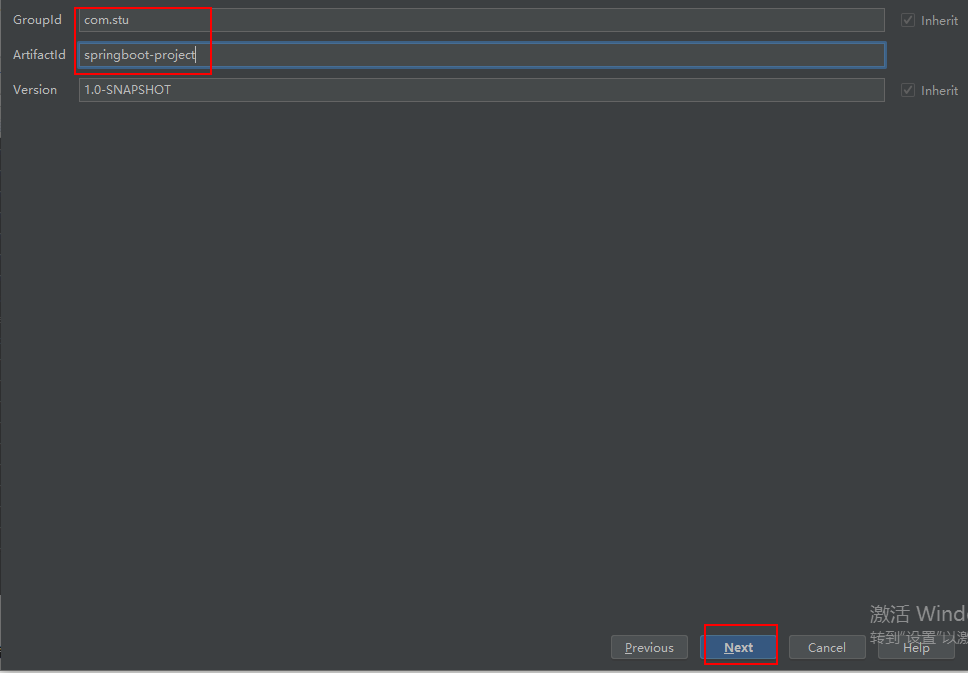
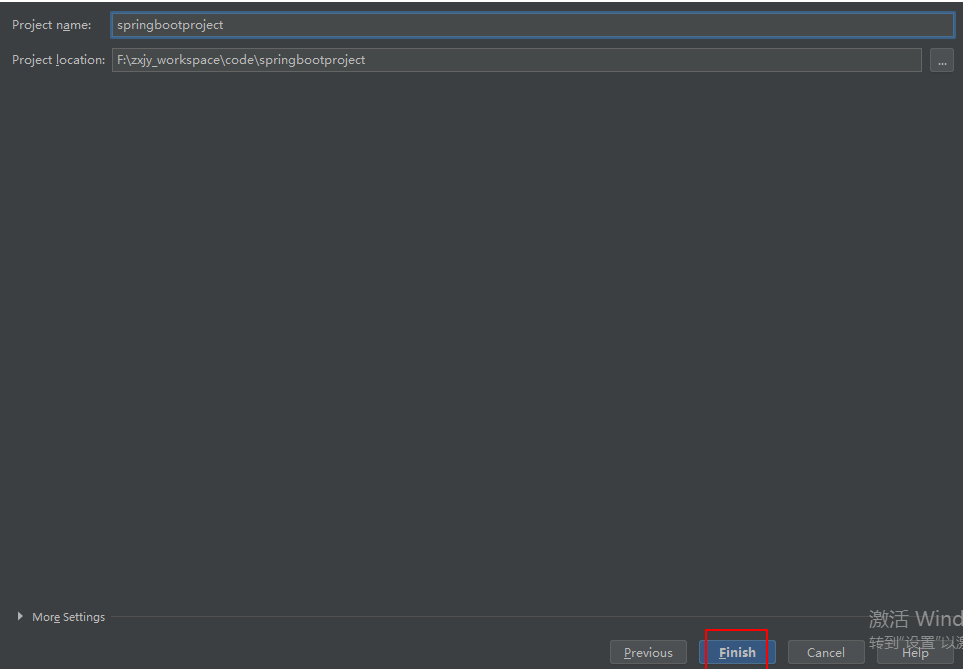
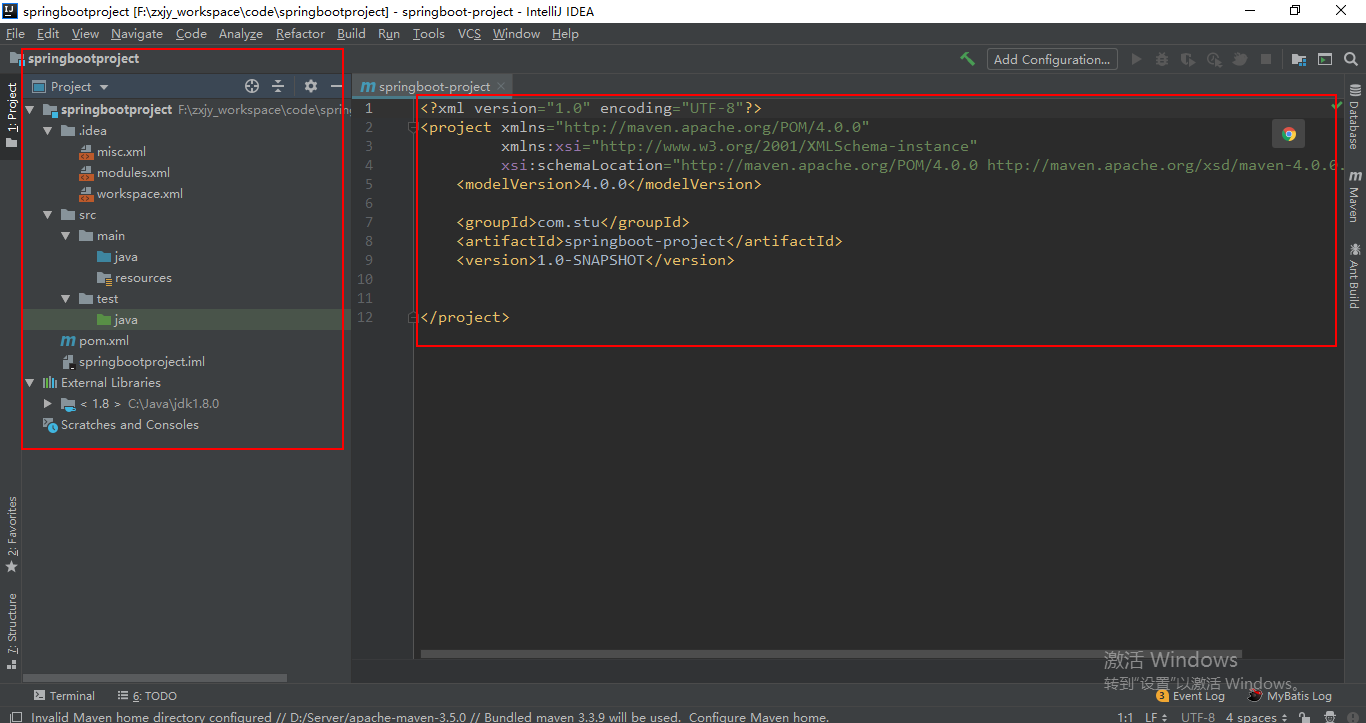
2、导入spring boot相关的依赖
<parent> <groupId>org.springframework.boot</groupId> <artifactId>spring-boot-starter-parent</artifactId> <version>1.5.9.RELEASE</version> </parent> <dependencies> <dependency> <groupId>org.springframework.boot</groupId> <artifactId>spring-boot-starter-web</artifactId> </dependency> </dependencies>
添加后的pox文件
<?xml version="1.0" encoding="UTF-8"?> <project xmlns="http://maven.apache.org/POM/4.0.0" xmlns:xsi="http://www.w3.org/2001/XMLSchema-instance" xsi:schemaLocation="http://maven.apache.org/POM/4.0.0 http://maven.apache.org/xsd/maven-4.0.0.xsd"> <modelVersion>4.0.0</modelVersion> <groupId>com.stu</groupId> <artifactId>springboot-project</artifactId> <version>1.0-SNAPSHOT</version> <parent> <groupId>org.springframework.boot</groupId> <artifactId>spring-boot-starter-parent</artifactId> <version>1.5.9.RELEASE</version> </parent> <dependencies> <dependency> <groupId>org.springframework.boot</groupId> <artifactId>spring-boot-starter-web</artifactId> </dependency> </dependencies> </project>
效果如下:
 HelloWorldMainApplication文件代码
HelloWorldMainApplication文件代码
package com.stu; import org.springframework.boot.SpringApplication; import org.springframework.boot.autoconfigure.SpringBootApplication; /** * @SpringBootApplication 来标注一个主程序类,说明这是一个Spring Boot应用 */ @SpringBootApplication public class HelloWorldMainApplication { public static void main(String[] args) { // Spring应用启动起来 SpringApplication.run(HelloWorldMainApplication.class,args); } }
@RestController注解,使用这个注解就不用使用@Controller和@ResponseBody注解了,作用相当于这里注解的结合,但是返回页面的时候应该还只能用@Controller
package com.stu.controller; import org.springframework.stereotype.Controller; import org.springframework.web.bind.annotation.RequestMapping; import org.springframework.web.bind.annotation.ResponseBody; @Controller public class HelloController { @ResponseBody @RequestMapping("/hello") public String hello(){ return "Hello World!"; } }
启动成功

游览器访问http://localhost:8080/hello



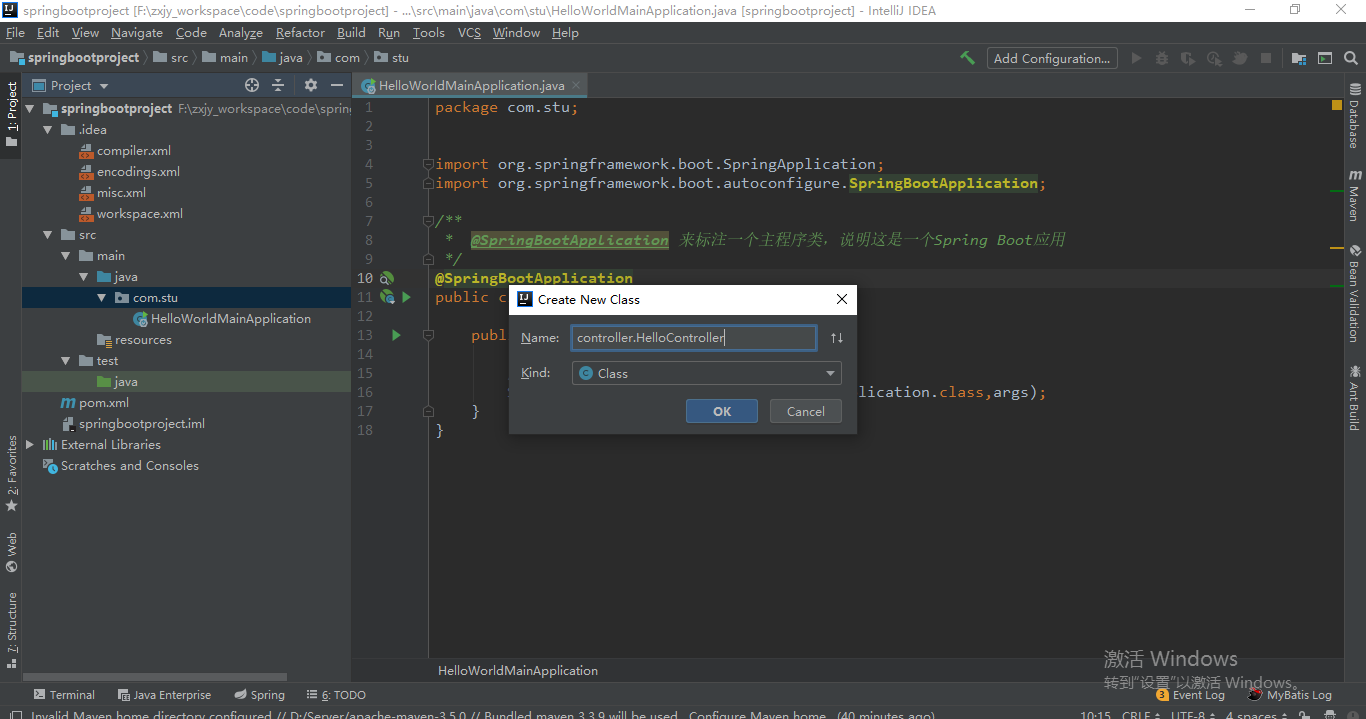 HelloController
HelloController 